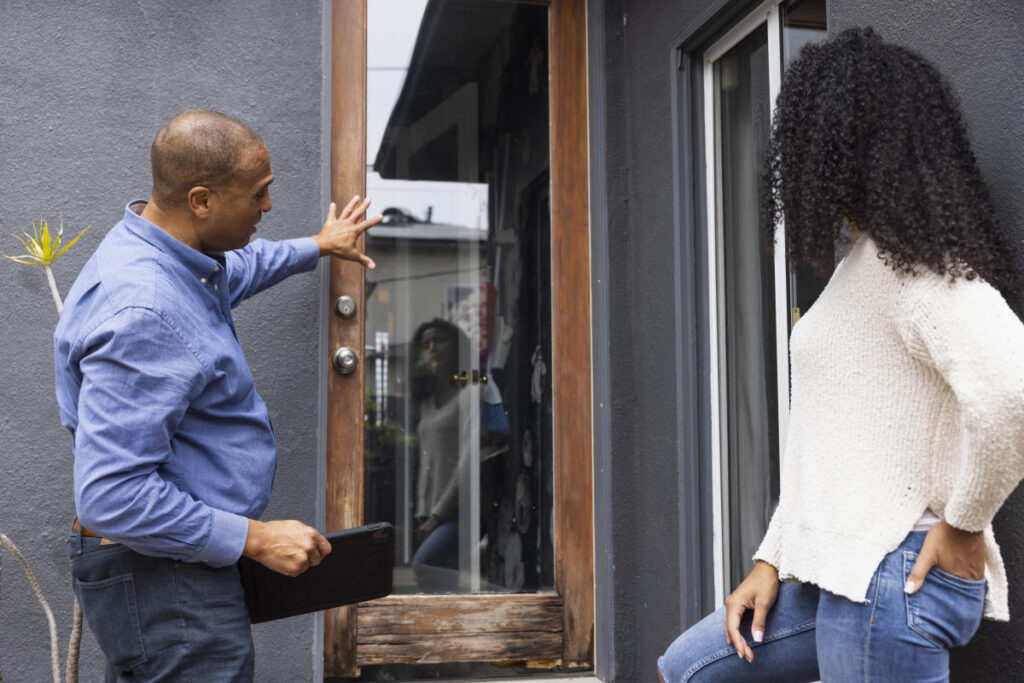Making an offer on a house can be an exhilarating experience, but it’s crucial to proceed with caution and arrange for a professional home inspection before committing. A home inspection is an essential process that helps ensure your potential dream home doesn’t turn into a costly nightmare after you move in. The inspection provides a comprehensive visual assessment of the property, identifying any existing problems, whether significant, such as issues with the foundation, or minor, like a leaky faucet. While some buyers may be tempted to forgo a home inspection, especially in competitive markets, it is critical to understand that this could lead to substantial future expenses if significant flaws are discovered after purchase. Even when purchasing an “as-is” property, having an inspection done offers you invaluable insights into the condition of the home and equips you with the knowledge necessary for informed decision-making upon receiving the inspector’s findings.
A home inspection typically occurs after an offer is accepted and is often contingent upon the results of that inspection as detailed in the buyer’s contract. Homebuyers are allowed a specific timeframe—often a few days—to have the property inspected and present any repair requests to the sellers. This process varies by contract but often includes options to either proceed with the sale, negotiate repair terms, or withdraw from the agreement if the findings are concerning. Importantly, a home inspection is distinct from a home appraisal, which assesses the property’s market value for lending purposes. Understanding the different roles these evaluations play in the home-buying process is vital for any prospective homeowner.
The home inspection itself involves a thorough examination, typically guided by a checklist that includes various critical aspects of the home. Inspectors will examine both the interior and exterior of the property, checking for structural weaknesses such as cracks in the foundation, condition of the roof and siding, signs of water damage, and any concerns regarding electrical systems, plumbing, heating, and cooling mechanisms. During the inspection, buyers may observe the process, although it’s often advised to allow the inspector to work without interruption to ensure thoroughness. Completing the inspection can take several hours, and buyers can expect to receive a detailed report, usually within 48 hours, detailing the findings with photographs of significant concerns noted.
Upon receiving the inspection report, it is crucial for buyers to review it diligently, as it provides vital information to guide their next steps. The inspector’s report may not provide the property’s market value or repair cost estimates, which must be sourced separately. Understanding that minor issues will likely be present in all inspections is key; the focus should be on identifying potentially expensive or hazardous concerns, such as structural problems or pest infestations. Additionally, if buyers suspect an oversight was made during the inspection, they should consult the contract regarding responsibilities and potential remedies.
While home inspections are not mandatory for cash purchases or conventional loans, they are generally advisable to protect buyers’ interests. For FHA or VA loans, however, inspections are usually required to ensure the home is safe and sound. It’s essential to recognize that home inspections do not cover every potential issue, particularly those hidden behind walls or obscured by furnishings. Ensuring the inspector can thoroughly evaluate the property is crucial, as any limitations can impact the inspection’s effectiveness.
Selecting a qualified home inspector is a vital step in the home-buying process. Buyers can seek recommendations from real estate agents, friends, or family, or consult professional organizations like the American Society of Home Inspectors (ASHI) for certified inspectors. Prospective clients should conduct thorough research on inspectors, assessing their licensing, insurance, and experience, as well as their inspection process and the aspects covered in a typical evaluation. Home inspection costs vary based on location and property size, typically ranging from $300 to $500, with additional fees for specialized tests like mold or asbestos assessments.
In summary, getting a home inspection is a fundamental step in purchasing a house, providing essential insights into the property’s condition and safeguarding against unforeseen expenses down the line. Buyers should take the necessary time to understand the inspection process, communicate effectively with their inspector, and carefully analyze the inspection report, as it can significantly influence negotiation strategies with sellers regarding repairs or price adjustments. Ultimately, being proactive about home inspections can lead to informed decisions, providing peace of mind during what is often a significant financial commitment.

